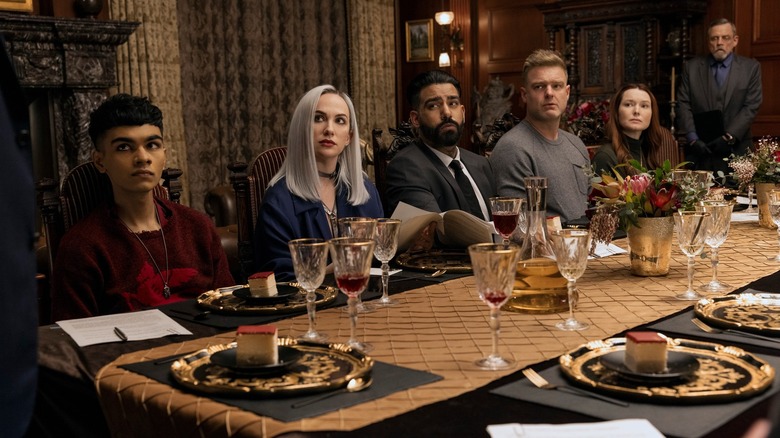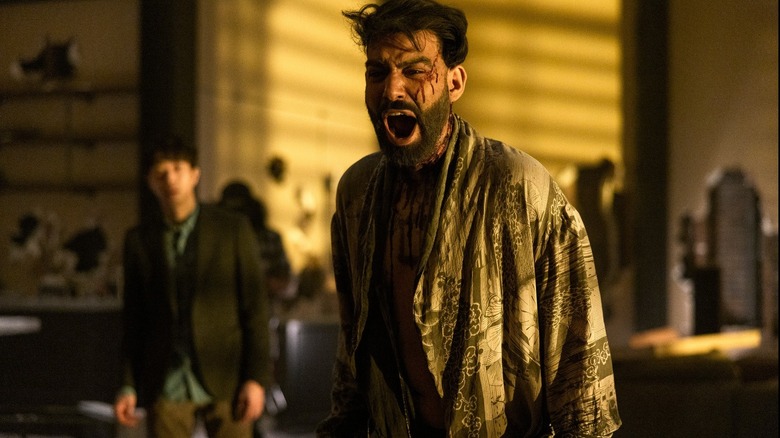Why The Fall Of The House Of Usher Is Less Emotional Than Mike Flanagan's Other Shows
In just over 10 years, Mike Flanagan has created a horror style as recognizable as that of the greatest masters of horror. You know when you're watching a Flanagan joint because of the focus on atmosphere, the selective use of jump scares, and also his highly emotional writing. More often than not, particularly in his more recent work, Flanagan expertly combines scares and tears, crafting stories that pull at the heartstrings.
But that's not "The Fall of the House of Usher." Flanagan's last show for Netflix before his move to Prime Video is unlike anything he's done in a while. "The Fall of the House of Usher" follows the titular Usher family, whose patriarch Roderick (alongside his sister, Madeline) created a pharma empire plagued by tragic and bizarre deaths.
Like "The Haunting of Hill House" and "The Haunting of Bly Manor," Flanagan's latest is inspired by the writings of a popular author. In the case of "The Fall of the House of Usher," the author in question is Edgar Allan Poe, with Flanagan remixing and changing things while still capturing the essence and themes of the source material. Where Flanagan's other Netflix shows were filled with melancholy and empathy, however, "The Fall of the House of Usher" features no tragic deaths. Instead, the many, many death scenes are violent, gruesome, and oh so much fun.
This, of course, was the plan. According to Flanagan, the show was always meant to be "more rock 'n roll."
The little death that brings obliteration
When a fan asked if "The Fall of the House of Usher" would be an "emotional rollercoaster" like his previous shows, Flanagan took to Tumblr to warn them that this is meant to be a different experience. "This one is way more fun — much more wicked and dark and funny," Flanagan said. "We weren't trying for the emotional experience of the others you mentioned, this was always more rock 'n roll."
Indeed, in many ways, this is a darker and angrier show — and it's all because of the Ushers themselves. Unlike Flanagan's other projects, we're not following a group of victims. Sure, the Ushers die off in horrible killings they are technically victims of, but they are far from innocent. This entire ensemble is despicable, and watching them die horrible deaths is rather cathartic. They are being punished, and not without reason. The children are being forced to pay for the sins of the father, but each episode makes it clear none of them are free of sin. Besides, each of them gets a chance to avoid a horrible end, but their horrible actions make their deaths equally gruesome.
So when Camille is mauled by a chimp or when Prospero dies in a horrific acid bath, it's hard to feel bad for them. The Ushers are not like the Crains in "Hill House" or the kids in "Midnight Club," whose deaths are tragic and sad. The Ushers are more like teenagers in a "Friday the 13th" movie, people who make us cheer when they get brutally killed. Rock 'n roll baby.

